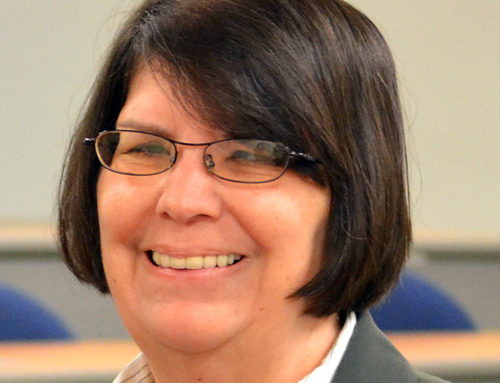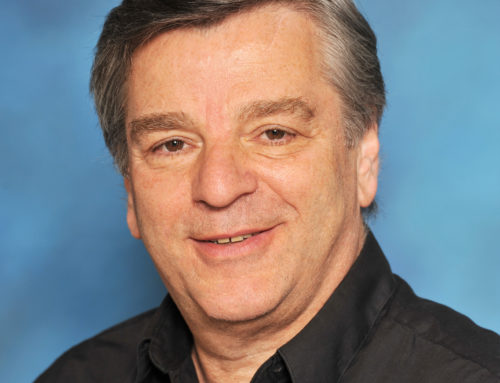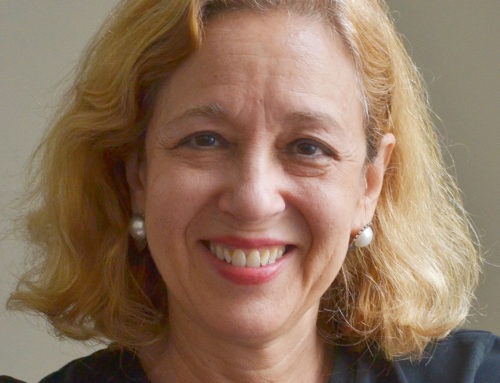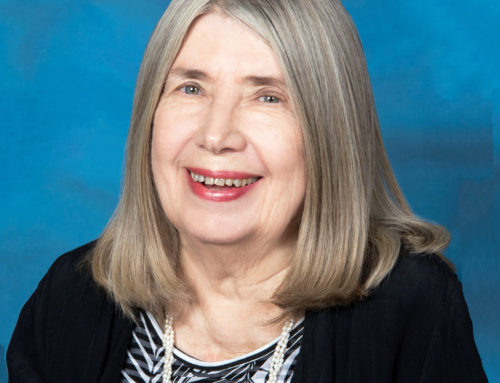Retiring Faculty
Dr. Richard Giaquinto: Teaching Future Teachers
By Lois Elfman
When Dr. Richard Giaquinto, professor in the department of education, came to St. Francis College, he had already had a three-decade career in education as an English teacher and administrator in the NYC public schools. Although he had dedicated his life to education, he felt an even greater sense of purpose from the moment he sat down for an interview with the late Dr. Frank J. Macchiarola, former NYC school chancellor and president of SFC from 1996–2008.
“He saw something in me that I don’t think I was aware of,” says Giaquinto. “He was a true Franciscan. He embodied that tradition. No matter where you saw him, you knew he believed in the mission of the college.”
The Franciscan mission aligned with Giaquinto’s own beliefs about education and for 20 years he reveled in teaching and training SFC students to be teachers. Since retiring, he’s been writing his memoir, playing music, and enjoying time with family.
What was it like teaching future teachers?

Dr. Richard Giaquinto
RG: It was an honor to do it, but it was challenging because I really wanted to make sure my kids were prepared for something that was extremely difficult. My job was to be honest with them and to explain to them—in addition to the methods that I taught—what it’s really like and what I went through.
I spent a great deal of time planning, reading and making sure that I was up on current theory.
How did you work with them to be conscious of bias and be sure it doesn’t enter the classroom?
RG: I always spoke to them about knowing who they were. Your culture, whatever you grew up with, that’s what you are familiar with. You can’t expect people to reciprocate and understand where you’re coming from because it’s a different perspective.
Get to know your kids. It’s rather difficult to do that; however, you have to make time. I preach this, to really get to know who they are, what they like and how would they respond. Get to know what their beliefs are. Show them that you care. If kids see that you care, you’re understanding and you work hard, everything else will fall into place. Of course, there are going to be some bumps in the road, but when they know you care, they will listen and they will meet you midway.
How has St. Francis College’s Franciscan mission impacted your teaching during your time at the college?
RG: Not only in my teaching, but in my life. Dr. Macchiarola instilled it in us. I totally believed in listening to people, helping people, understanding them and giving back. Help them manifest that belief.
How have you connected with your students and showed them how to connect with their students?
RG: I knew my content. I knew my methods. I tried to model for them what I wanted them to be once they hit the classroom. Being yourself, having a sense of humor, listening to your kids, taking care of yourself because if you’re not well you can’t work with them. Lead a balanced life. Also, have high expectations.
Is there a moment, class or event that especially stands out?
RG: I didn’t tell any of my students that I was retiring because I didn’t want it to affect them. The last group of student teachers that I had, I was so close to them. I saw them from when they were freshmen and sophomores until they were seniors. At the end of our last session, I said, “It’s been an honor to work with you. I’ve learned so much from you. You’re my last class that I’ll be teaching here in the college.” Then I started to cry. Of course, they reciprocated and started to cry.
What ongoing relationships have you sustained with St. Francis alumni who you’ve taught and mentored over the years?
RG: I pray for them every day. When I’m meditating, I think about them and the job that they’re doing.
Do you have any message you want to share regarding the ongoing challenges due to COVID-19?
RG: You’re going to have to roll with the punches. You’re going to have to try to make yourself available as much as you can to help your kids. You have to understand the limitations of teaching online because it’s not the same as working with kids face to face. You’re going to have to develop the ability to let your personality shine even if it’s through Zoom or whatever virtual means that you’re teaching.
Give these kids a chance to be creative. Try to work in time where you can laugh together, where you can discuss things. Open communication is really important. Don’t be afraid to discuss hard issues. Try to be flexible. Try to prepare the best that you can and make a lot of back-up plans.





